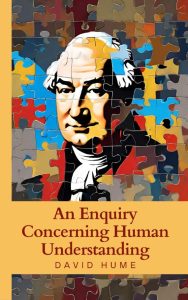An Enquiry Concerning Human Understanding by David Hume

Download and Enjoy An Enquiry Concerning Human Understanding by David Hume
Thank you for your interest in downloading An Enquiry Concerning Human Understanding by David Hume. Please find the free ebook versions below.
About this Public Domain Book
This full text of An Enquiry Concerning Human Understanding has entered the public domain in the UK and is now freely available. It may be reproduced, distributed, or transmitted without any restrictions. We are providing it for free distribution and use by individuals for non-commercial purposes. Please note that the copyright status in other countries may vary, so it is advisable to check the copyright laws of your specific jurisdiction before reproducing, distributing, or transmitting the text.
Download An Enquiry Concerning Human Understanding by David Hume As A Free Ebook
You can download this book in two common ebook formats:
- EPUB format - compatible with most e-readers like Kindle, iPad, Nook, etc.
- PDF format - useful for printing or viewing on any device
First published: 1748
Number of Words: 58,000
Avg. Time to Read: 4 - 5 hours
Description:
An Enquiry Concerning Human Understanding is a book written by Scottish philosopher David Hume, published in 1748. It was Hume’s first attempt to present his unique philosophical views to a general audience in a clear and simplified manner. In the Enquiry, Hume set out to explore the limits of human understanding through an examination of the mind and its operation.
The book has its roots in Hume’s earlier A Treatise of Human Nature published in 1739. However, the Treatise was criticized for being too dense and abstract. For the Enquiry, Hume simplified and reorganized his views into a more accessible format. He focused on exploring key topics like causation, belief, and reasoning through a series of philosophical essays. Hume utilized an empirical, skeptical approach to undermine rationalist theories of knowledge and metaphysics that were dominant at the time.
Through the Enquiry, Hume aimed to establish the proper boundaries of the human capacity for knowledge and reason. He argued that all of our ideas are derived from sensory impressions and that we have no rational justification for beliefs like causation, the external world, the self, and God. Hume believed that philosophers placed too much faith in reason and did not acknowledge properly the limits imposed by nature on human understanding. The Enquiry had a significant impact through its novel empiricist and skeptical perspective.
Upon its publication, the Enquiry was met with both praise and criticism from Hume’s contemporaries. It achieved wider readership than his previous works and established him as an important Enlightenment thinker. The Enquiry remains one of Hume’s most accessible works and is still widely read today for its empiricist challenges to rationalist thought and its influence on later philosophers such as Kant. It made lasting contributions to epistemology, metaphysics, and the history of philosophy.
Download:
Need Help Loading the Book onto Your Device?
If you encounter any issues while loading the book onto your device, check out our guide on loading books from 250 WPM onto your device.
